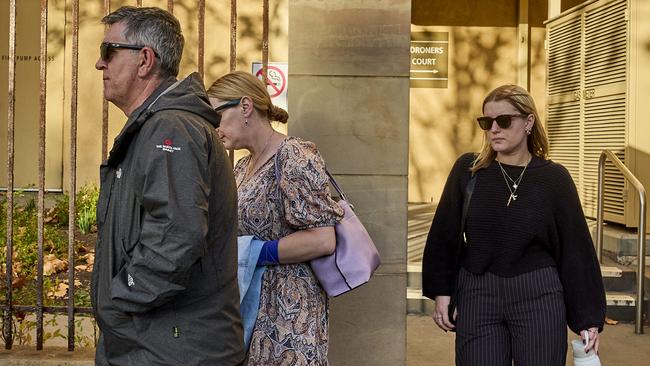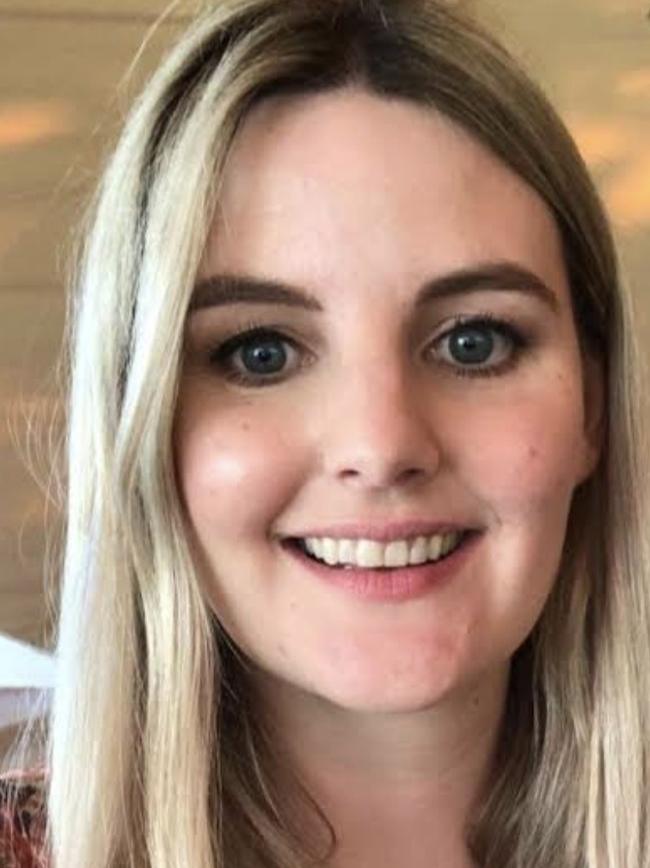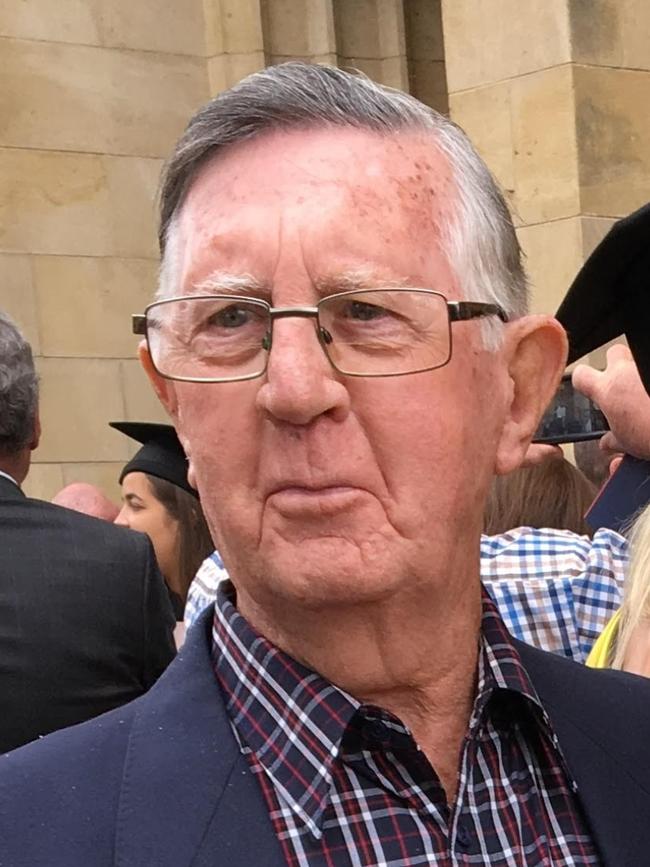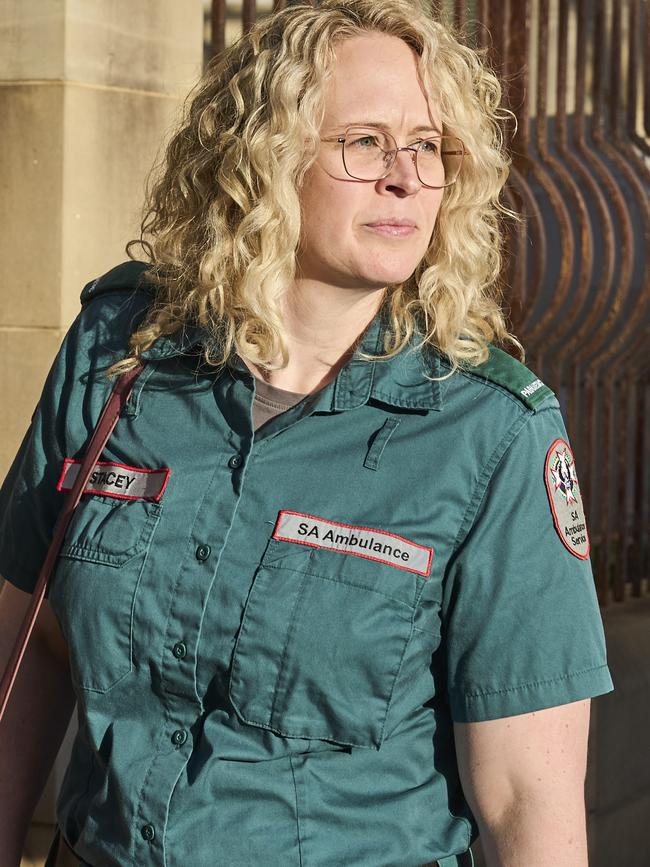Dr Eve Hopping tells inquest into ramping deaths doctors are free to see patients but they can’t physically fit into emergency
A “helpless” doctor has told an inquest into Adelaide’s ramping crisis there are times she’s free to see patients – but there was literally no room in emergency.
Police & Courts
Don't miss out on the headlines from Police & Courts. Followed categories will be added to My News.
A doctor says she feels “helpless” that despite being free to see ramped patients, there was physically no room in the emergency department for her to do so, an inquest had heard.
An inquest into the deaths of three patients ramped inside ambulances at Adelaide hospitals heard 89-year-old Bernard Anthony Skeffington – who choked on his own vomit – could have lived had paramedics been able to insert nasogastric tubes into a conscious patient.
Giving evidence on Wednesday, former medical officer at Royal Adelaide Hospital Dr Eve Hopping told the court if the tube had been placed earlier, Mr Skeffington’s death likely could have been avoided.
Dr Hopping said ramping “absolutely” affected her work, due to the “lack of flow” through the emergency department, which “actively interfered” with the care of patients.

She told the inquest a “really appreciable” number of emergency beds were taken up by patients waiting for mental health beds.

“It wasn’t the right place for their acute mental health problems, and at the time there were patients waiting on the ramp being delayed to get in,” Dr Hopping said.
Dr Hopping said that meant ambulance crews were also stuck on the ramp unable to be dispatched to other jobs.
She spoke of one shift where even though there were patients on the ramps waiting to be seen, there was physically no room for them.
“The emergency department was just so blocked, we had used very cubicle and every chair in every corner and there was no other appropriate corner to bring someone in,” she said.
“It was just a very helpless feeling.”
Mr Hopping said it was frequent that mental health patients she saw on one shift would still be there by her next shift.
Stacey White – the paramedic who treated Mr Skeffington as he waited nearly two hours – told the inquest on Tuesday measures could have been taken to “prevent” his death in 2021.


The inquest, investigating the deaths of Mr Skeffington as well as Anna Vincenza Panella, 76, and Graham Henry Jessett, 64, started last week where it was revealed they all suffered medical complications after being ramped for extended periods of time.
On Wednesday, paramedic Erin Pankoke also gave evidence regarding her experience with Mr Skeffington.
Ms Pankoke said she had left the ramped ambulance to ask the triage nurse to prioritise his case for a third time when Mr Skeffington started to deteriorate.
“When I came to the side of the ambulance, two others were there and I was shocked.
“I just saw he wasn’t responding as he had been previously. I remember it being quite a frantic situation.”
Ms Pankoke said another paramedic and an intensive care paramedic were assisting Ms White as they rushed Mr Skeffington into the emergency department.
Once Mr Skeffington got into the resuscitation bay in the emergency department, Ms Pankoke said she and Ms White returned to the ambulance.
“She (Ms White) was visibly quite upset by what had happened at the back of the ambulance,” she said.
Ms Pankoke said she and her colleague had to alert the triage nurse to their presence three times as Mr Skeffington’s condition deteriorated.
“He became quite uncomfortable and continued to deteriorate,” she said. “He was grabbing towards his abdominal region.”
Ms Pankoke said she went in to alert the triage nurse for the third time after Mr Skeffington started to feel nauseous – it was then they were told to bring him straight in.
Deputy State Coroner Ian White asked Ms Pankoke if she was also distressed about Mr Skeffington.
“Absolutely, I was distressed for the both of them having to have been on their own while I went inside to escalate his care,” she said.
“And then I was unable to assist them both.”
Mr White also asked Ms Pankoke if she still has those same feelings today.
“I often will drive past his unit and I will think of him.”
The inquest continues.




